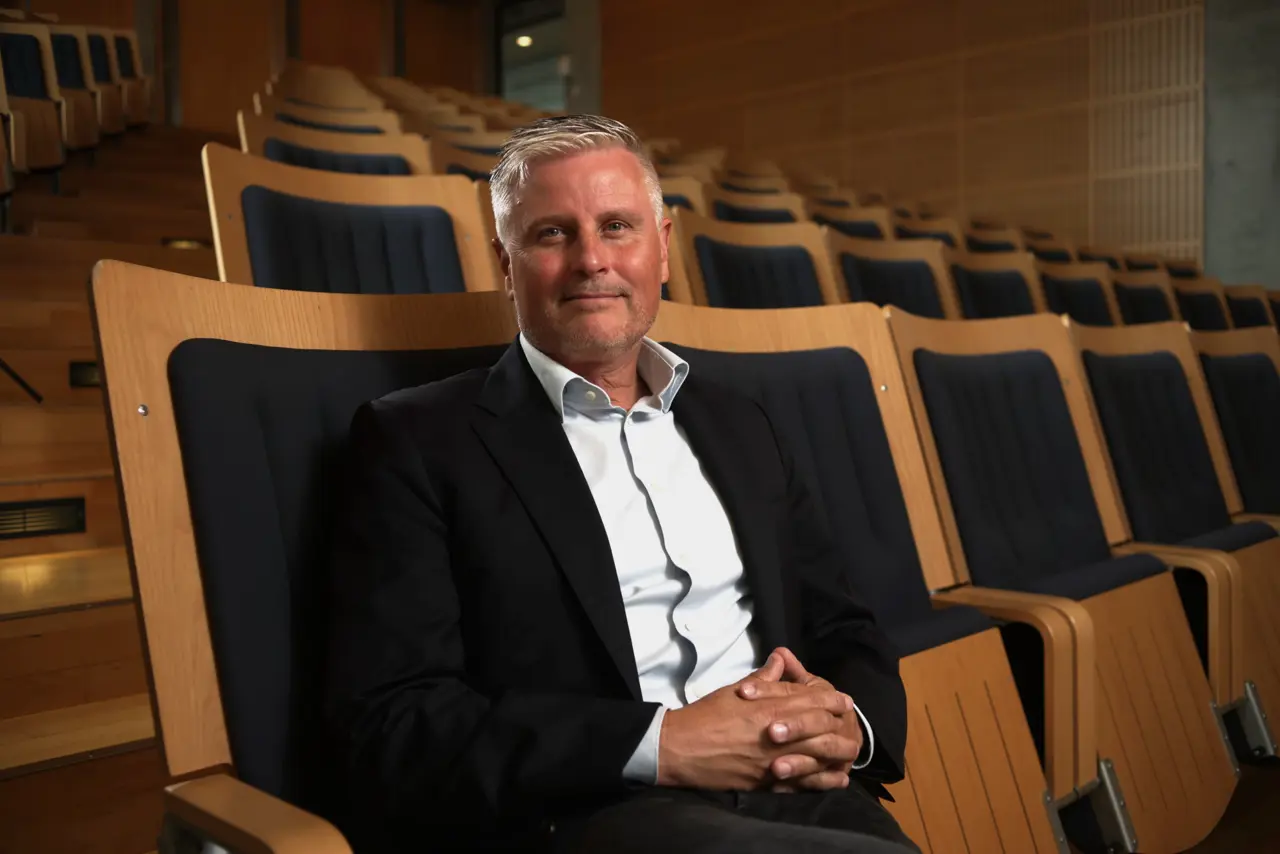Prize recipient 2025 | Claes Holger de Vreese
Prize recipient 2025 | Claes Holger de Vreese
Published:
03.09.2025
Text profile on Claes Holger de Vreese – recipient of the Carlsberg Foundation Research Prize 2025.
What is your research field?
My field is political communication. The short version is that I study the interactions between media, politics, public opinion, and citizens. How do media cover politics, how do politicians communicate, what are the effects on public opinion and political behaviour? These are all questions that keep busy.
In the past decades we have gone from a situation with a single broadcasting television channel and a few, dominant broadsheet newspapers to a hybrid media system with most information being consumed online. The role played by technology and currently in particular artificial intelligence is a leading theme in my research.
In ongoing projects in our labs, we study for example how generative AI affects journalism, its content, and the audience’s experience of news. We study how AI is used in political campaigns and how it contributes to challenges of misinformation. And we study citizens’ skills and competence when it comes to AI and how attitudes towards AI evolve over time.
Video
What are the challenges of your research and what are your perspectives?
I am fortunate that my research interest is also a kind of hobby, so I am open and keen to know more, explore new things. The challenges are many, so to mention a few
We study a truly moving object. The technological developments are rapid. For example, we had a study of AI and journalism before the broad launch of ChatGPT and generative AI. After the launch and quick developments that followed, we needed to pivot in the team.
Data access is a key challenge: it is a tragedy how poor the data are to study for example AI usage or citizens’ interactions on social media platforms. To collect data, we use all kinds of way to study for example social media behaviour: data donations from citizens, mock up social media platforms, and hopefully in the future data access from tech giants, which is mandatory according to new EU regulations.
A more recent challenge is political pressure. There is a mounting, ideologically driven resistance to for example disinformation research and scholars. This is very worrying to observe, especially when it comes to campaigns against women and early career scholars.
But despite these challenges I want to say that I feel very grateful to be able to study some of contemporary society’s grand challenges and there is a lot of interest, not only in the academic world but also from society, educators, regulators, policy makers, etc.
How did you become interested in this research field?
Ever since my childhood I have been fascinated by the role that journalism, media, and information play in the relationship between media and politics. Originally, I thought I wanted to be a journalist, but during my studies, I realised that the fascination with media and communication and its impact is an excellent object of study.
We have worked with media organisations on a number of studies, as collaborators in creating news to be used in experimental settings, as part of innovation and strategy development, in change case studies, and as participants in workshops and training.
I have always kept my fascination with media and journalism. Meanwhile the communication and information ecology has radically changed, as has the political arena. I have been lucky to come across many people who supported me, opened doors, sparked new questions and curiosities. Over the years, I have tried to make it part of my own work to create projects, labs and centres where new scholars, from across disciplines, could come together to be part of solving the puzzle of the role of political communication in society.

What are the most important realisations or discoveries you have made so far?
Research is a bit like being part of making a bigger puzzle. Some pieces are bigger, some are smaller, but they are all part of a bigger challenge. Some of the most important insights from across studies of different topics, media, countries, and citizens are:
First, that small and modest effects of communication can be meaningful and consequential. Often big groups are not persuaded by specific messages, but smaller effects can be super influential for attitudes, discussions, and behaviour of some individuals. Citizens respond very differently to new information; some are more malleable, some more stable. And context matters, some information in one context can have a different impact on some citizens than in other contexts.
Second, media and communication questions are complex. Sweeping statements about big tech, persuasion, etc often hide a much more nuanced and detailed picture.
Third, many of today’s questions really require an interdisciplinary approach and a joint effort. To realise this is an insight which is also very humbling because it shows even clearer how little you know.
What does it mean to you to receive the Carlsberg Foundation’s Research Prize?
As a Dane who has worked both abroad and in Denmark for many years, I have always felt very connected to Danish research and society. It means a lot to receive this recognition from Denmark.
I consider it a recognition of team efforts. In the past 20 years I have worked with teams at the University of Southern Denmark, across Denmark, in Amsterdam, and globally. The collaborations, the ideas, the insights, are really results of teamwork. In that sense the Prize is also a celebration of team science.
While this prize celebrates collaborative research, I also like to see it as a recognition of the fact that some of today’s biggest challenges are socio-technical challenges, where a social science perspective can be in the lead. We really need insights from across disciplines to understand current developments and social science can lead such efforts.